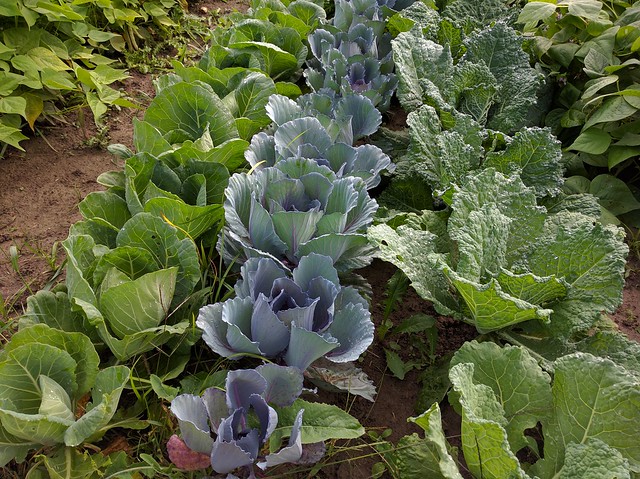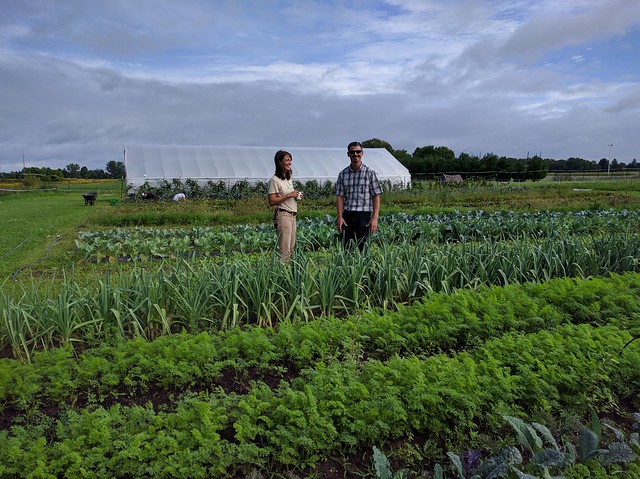
Financing is a challenge for business start-ups, and it is especially true for small farms. Sarah Longstreth, owner of Good Stead Farm, made her agriculture career goal a reality with some help from USDA.
Good Stead Farm, is a source of fresh, local organic food in Midland County, Michigan. It’s a community supported agriculture (CSA) farm that feeds 60 families as well as sells at local restaurants and farmers market.
“We currently grow 10 months out of the year, producing for a three-season, 60-family CSA, three local restaurants and the Midland Farmer's Market,” said Sarah, who founded the farm in 2015. “Our products include over 100 different varieties of nearly 45 vegetables, herbs and flowers, as well as pastured chicken and duck eggs and grass-fed and finished lamb.”
Sarah does all of this on just seven acres.

Extending the Growing Season
Sarah uses three hoop houses to extend the growing season on her farm.
Hoop houses, or seasonal high tunnels, are plastic covered structures that trap heat from the sun to create a warm climate. High tunnels help farmers extend the growing season – producing crops longer into the winter and earlier in the spring.
This not only improves a farmer’s bottom line, it also enables them to provide fresh, local produce for their communities, often year-round. High tunnels commonly incorporate other conservation practices, such as drip irrigation and cover crops, and protect plants from air pollution and pesticide drift.

Seeds of a New Business
Financing is a challenge for most business start-ups, and it is especially true for small farms. Small ag operations often do not have enough collateral in the beginning to offset a private lender’s risk in administering the loan. Small beginning farms typically have not yet built up the loan collateral needed for commercial lenders.
By networking with experienced farmers, Sarah discovered the farm loan programs available through USDA’s Farm Service Agency (FSA).
“FSA was a really awesome, easy way to think about financing the startup of the farm,” she said. “My loan officer was super great, and he was very supportive.”
The microloan program helped Sarah purchase cold storage equipment, a walking tractor and other start-up costs of Good Stead Farm.
Good for the Land
Good Stead Farm prides itself on using conservation practices that improve soil health and favoring heirloom and heritage plant and animal species.
In addition to using hoop houses, Sarah worked with USDA’s Natural Resources Conservation Service (NRCS) to plan and implement a variety of conservation practices, including the planting of pollinator habitat and development of plans for best managing pests and nutrients. NRCS also helped her with mulching to suppress weeds, and planting cover crops to improve soil health and her grazing system. This will include developing a prescribed grazing system to help improve pasture forages and graze with more intensive management.
More Information
Learn more about Sarah’s farm in this interactive, multimedia story on Farmers.gov. Producers interested in microloans, conservation practices and other USDA assistance are recommended to contact their local USDA service center.



